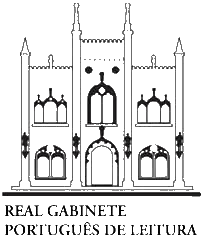O motivo do mandarim assassinado: Eça de Queirós e Machado de Assis
Resumo
O motivo literário do “mandarim assassinado”, explorado por Balzac em O pai Goriot, está presente na novela O Mandarim, do escritor português Eça de Queirós, de junho de 1880, e no conto “O enfermeiro”, de Machado de Assis, publicado na Gazeta de Notícias do Rio de Janeiro em 1884. A proposta do artigo é a de refletir sobre a intertextualidade – e no caso que trazemos aqui ela é explícita e deliberada – e de que modo uma mesma ideia se atualiza em contextos literários distintos, explorando formas de dialogismo que vão da ressignificação à deformação parodística do discurso do outro.Downloads
Downloads
Publicado
Como Citar
Edição
Seção
Licença
Os autores que publicam nesta revista concordam com os seguintes termos:
a. Autores mantêm os direitos autorais e concedem à revista o direito de primeira publicação, com o trabalho simultaneamente licenciado sob a Licença Creative Commons Atribuição NãoComercial (CC-BY-NC 4.0) que permite o compartilhamento do trabalho com reconhecimento da autoria e publicação inicial nesta revista.
b. Autores têm autorização para assumir contratos adicionais separadamente, para distribuição não-exclusiva da versão do trabalho publicada nesta revista (ex.: publicar em repositório institucional ou como capítulo de livro), com reconhecimento de autoria e publicação inicial nesta revista.
c. Autores têm permissão e são estimulados a publicar e distribuir seu trabalho online (ex.: em repositórios institucionais ou na sua página pessoal) a qualquer ponto antes ou durante o processo editorial, já que isso pode gerar alterações produtivas, bem como aumentar o impacto e a citação do trabalho publicado.

A Revista Convergência Lusíada utiliza uma Licença Creative Commons - Atribuição-NãoComercial 4.0 Internacional.









